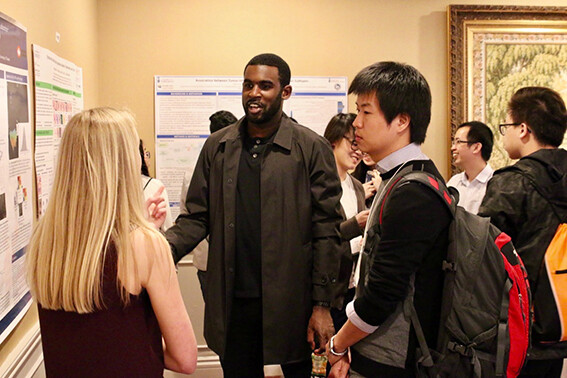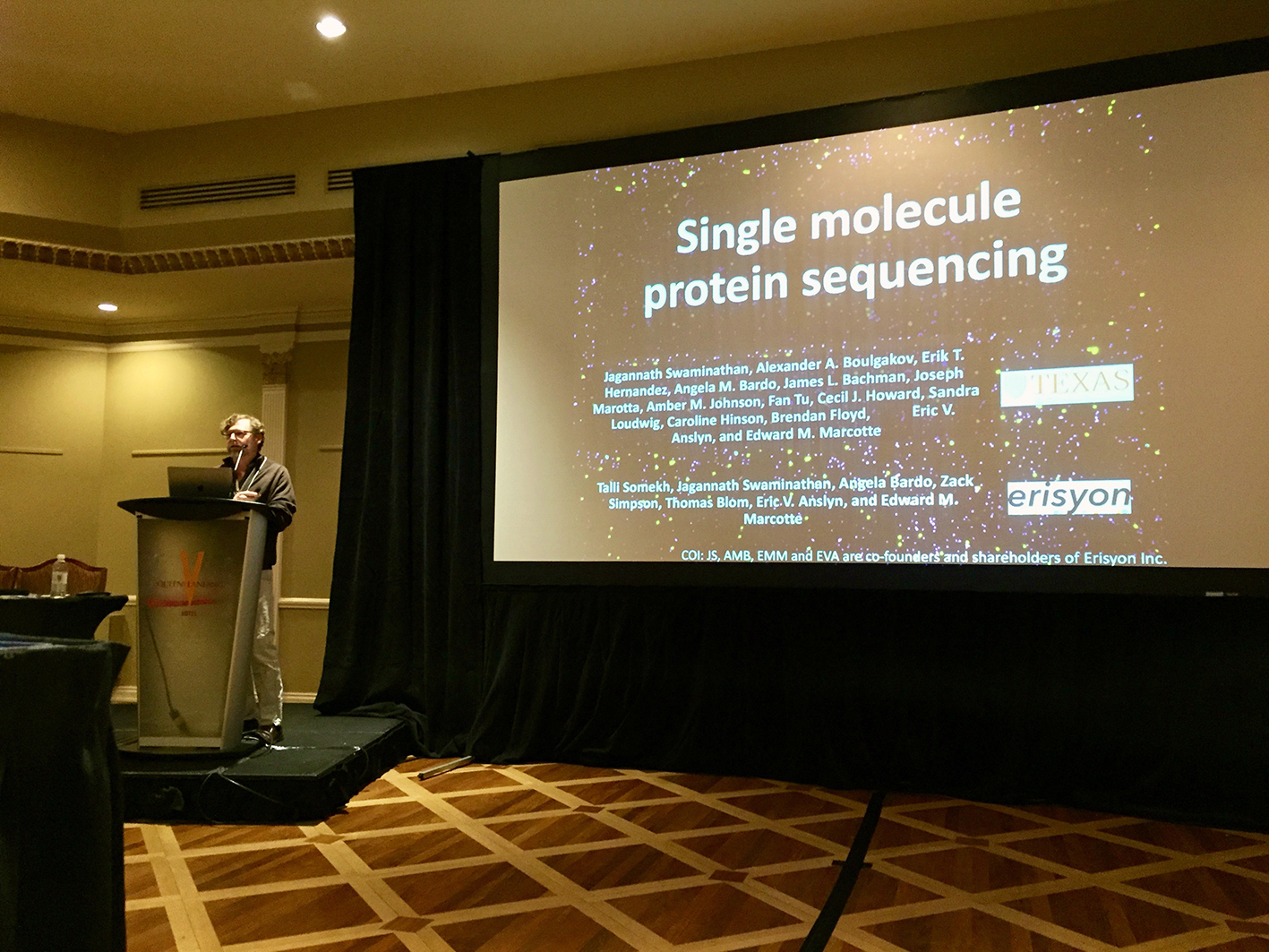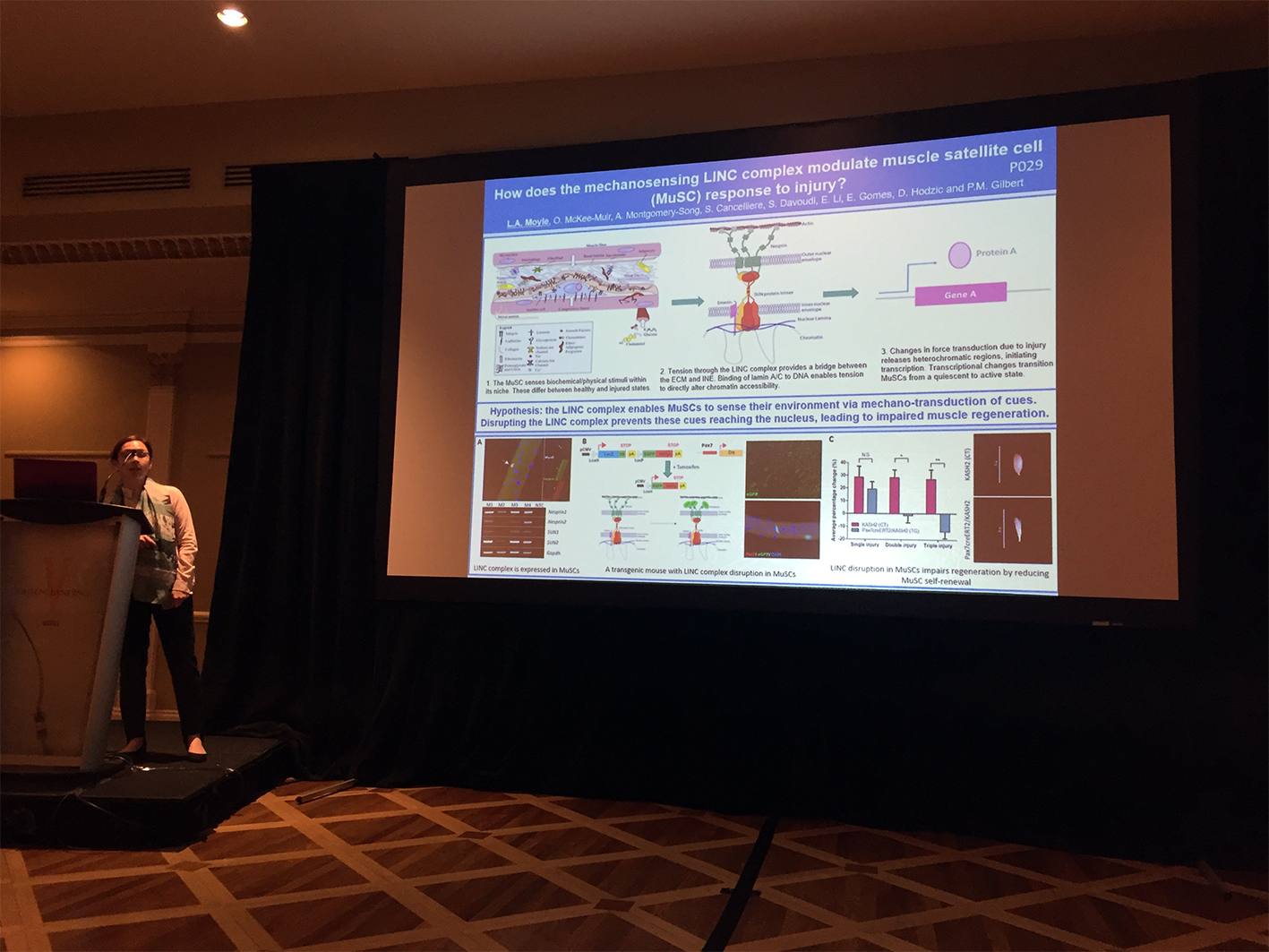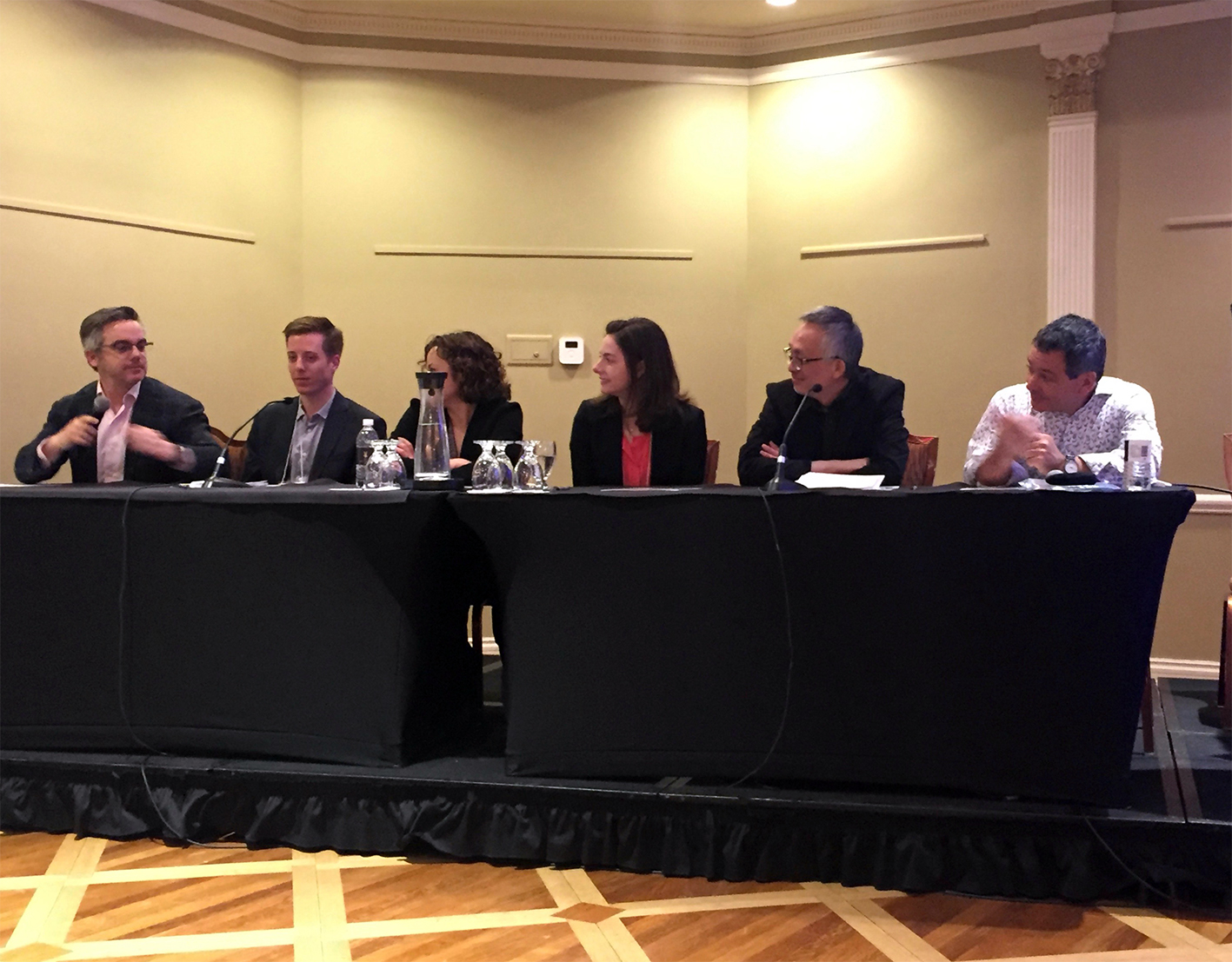Mobile Menu
-
Our Scientists
- Andrews, Brenda
- Angers, Stephane
- Attisano, Liliana
- Babaian, Artem
- Bader, Gary
- Blencowe, Benjamin
- Boone, Charles
- Brown, Grant
- Chan, Warren
- Fraser, Andrew
- Friesen, James (Professor Emeritus)
- Gilbert, Penney
- Gillis, Jesse
- Goeva, Aleksandrina
- Greenblatt, Jack
- Harrington, Lea
- Hughes, Timothy
- Kim, Philip M.
- Krause, Henry
- Montenegro Burke, Rafael (Rafa)
- Morris, John
- Morshead, Cindi
- Radisic, Milica
- Röst, Hannes
- Roth, Frederick (Fritz)
- Roy, Peter
- Ryu, William
- Sefton, Michael
- Shoichet, Molly
- Stagljar, Igor
- Taipale, Mikko
- van der Kooy, Derek
- Wang, Shu
- Wheeler, Aaron
- Yip, Christopher
- Zhang, Zhaolei
- Research
- Platforms
- Students
- Postdocs
- News
- Careers
- Events
- About Us


 First keynote speaker, Edward Marcotte, presented a new method for single-molecule protein sequencing. Termed fluorosequencing, the imaging-based method involves anchoring fluorescently labeled protein molecules onto a glass slide followed by stepwise chemical degradation. Seven years in the making, the platform can process thousands to millions of molecules in parallel and has the potential to elevate proteomics to the level of throughput and sensitivity akin to next generation DNA sequencing.
First keynote speaker, Edward Marcotte, presented a new method for single-molecule protein sequencing. Termed fluorosequencing, the imaging-based method involves anchoring fluorescently labeled protein molecules onto a glass slide followed by stepwise chemical degradation. Seven years in the making, the platform can process thousands to millions of molecules in parallel and has the potential to elevate proteomics to the level of throughput and sensitivity akin to next generation DNA sequencing. The Bioengineering session covered a new tissue culture platform for the discovery of drugs capable of stimulating muscle repair (Bella Xu, GS,
The Bioengineering session covered a new tissue culture platform for the discovery of drugs capable of stimulating muscle repair (Bella Xu, GS, 

 At a banquet dinner, Acting Director
At a banquet dinner, Acting Director